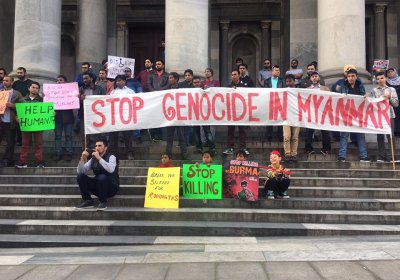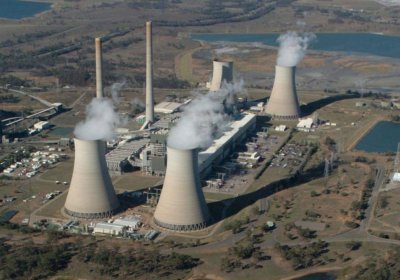Women footballers in Australia, playing in the W-League, will receive a sizeable pay rise and improved employment conditions after a landmark collective bargaining agreement announced on September 11 between Football Federation Australia, W-League clubs and the players’ union, the Professional Footballers Australia (PFA).
1153
A noisy group of protesters gathered outside the Australian Infrastructure Investors Forum on September 12 to “welcome” its keynote speaker, the CEO of the Northern Australia Infrastructure Fund (NAIF) Laurie Walker. NAIF Board members are the focus of a campaign by the movement to prevent the massive Adani coalmine in Queensland’s Galilee basin.
Moreland City Council took a big step forward on September 13 when it voted to drop all references to January 26 as Australia Day out of respect for Aboriginal people. But it stopped short of cancelling its official Australia Day citizenship ceremony.
Former Prime Minister Paul Keating loved this quote of his long-time mentor former NSW Premier Jack Lang. I was reminded of its currency and utility recently, when I read that the Association of Superannuation Funds of Australia (ASFA) had made an (overdue) entrance to the public debate about the costs and benefits of the emerging “gig” economy — let’s be honest, it’s mainly costs.
Britain’s main trade union confederation, the Trade Union Congress (TUC), held its 149th annual conference in Brighton on September 10-13. The gathering brought together hundreds of leaders, organisers, delegates and activists from more than 50 TUC-affiliated trade unions.
The conference discussed and adopted motions of support and campaign plans to oppose the austerity measures of the Conservative-Democratic Unionist Party government of Prime Minister Theresa May.
In a major embarrassment for the federal government, the head of the Australian Building and Construction Commission (ABCC) Nigel Hadgkiss was forced to resign on September 13 after admitting he breached workplace laws.
Hadgkiss came under pressure to resign from his $426,000 a year job after he admitted to breaching s.503 of the Fair Work Act by publishing downloadable posters and fact sheets on the ABCC’s website that misrepresented the rights of union officials to enter premises to meet workers.
More than 500 people attended a rally called by the Islamic Council of Victoria (ICV) on September 9 in solidarity with the Rohingya people of Myanmar (Burma).
Rally chair Adel Salman, the vice-president of the ICV, said genocidal policies against the Rohingya have been carried out for decades. The Rohingya were citizens of Burma when it became independent in 1948, but were deprived of citizenship after a military coup in 1962.
For a long time, Australian governments have believed that the private sector should run the electricity sector. Successive governments have used market instruments to incentivise reducing emissions, by supporting renewables, discouraging coal use, or both.
Mass protests and strikes have erupted across Rojhilat (Iranian Kurdistan) since September 3, following the killing of two kolbers (cross-border porters who transport merchandise) by Iranian border guards the previous day. The Iranian regime has responded by militarising the area, attacking protests with security forces and pro-government thugs and making mass arrests.
Several Iranian Kurdish organisations and political parties have supported the uprising. They have called for unity between political forces in Rojhilat and with other progressive movements in Iran.
The electricity industry crisis has reached new heights, with the federal government pressuring giant energy company AGL to keep the ageing Liddell coal-fired power station open for a further five years after 2022, its due date for closure.
Liddell, in the Hunter Valley region of NSW, is a coal-burning dinosaur. The reality is neither the government’s policy of defending Big Coal, nor its reliance on the so-called “energy market”, will solve the problem of skyrocketing electricity prices for consumers or the looming environmental crisis.
Indigenous students protested at the University of New England (UNE) in Armidale on September 12 after UNE management failed to adequately address their concerns and made decisions without consulting them.
Chanting “About us without us — Tell us why do you doubt us”, Indigenous students delivered their demands to UNE’s senior management at the Oorala Aboriginal Centre.
The National Union of Workers (NUW) joined with Melbourne’s Rohingya community on September 7 to protest the genocide against Rohingya in Myanmar. The NUW has formed a strong bond with the Rohingya community through its work organising Rohingya and other heavily exploited migrant farm workers to win better wages and working conditions.
Many members of the Rohingya community in Melbourne have family members who have been killed in the current genocidal attacks on Rohingya in Myanmar.
- Previous page
- Page 2
- Next page











